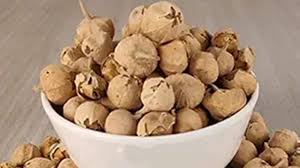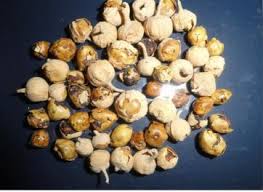
Managing Insulin Resistance with Paneer Phool
Insulin resistance is a condition that occurs when the body’s cells no longer respond effectively to insulin, a hormone that helps regulate blood sugar levels. This can lead to higher blood sugar levels and eventually result in Type 2 diabetes if left unchecked. While medication is often used to manage insulin resistance, natural remedies can provide a holistic and complementary approach. One such remedy is Paneer Phool (Withania coagulans), an herb that has been used for centuries in Ayurveda for its medicinal benefits, including its ability to support insulin sensitivity and help manage blood sugar levels. In this article, we will explore how Paneer Phool can play a vital role in managing insulin resistance naturally and effectively.
🌿 What is Paneer Phool?
Paneer Phool, also known as Withania coagulans, is a powerful herb that has been utilized for its medicinal properties in traditional Indian medicine (Ayurveda) for centuries. It is commonly referred to as Paneer Dodi or Indian cheese flower due to its unique appearance and natural healing qualities. Paneer Phool is known for its ability to help balance the body’s doshas (Vata, Pitta, and Kapha) and improve overall metabolic function. It is particularly effective for managing insulin resistance and blood sugar regulation, making it a key herb in the management of diabetes and metabolic syndrome.
This herb contains bioactive compounds such as withanolides, alkaloids, and steroidal lactones, which are responsible for its anti-inflammatory, antioxidant, and insulin-sensitizing effects. These properties make Paneer Phool a valuable herbal remedy for insulin resistance, a precursor to Type 2 diabetes.
🌱 How Paneer Phool Helps in Managing Insulin Resistance:
Insulin resistance is a condition where the body’s cells no longer respond to insulin effectively, causing the pancreas to produce more insulin in an attempt to keep blood sugar levels stable. Over time, this can lead to high levels of insulin in the blood (hyperinsulinemia), which can have various negative effects on the body, including the development of Type 2 diabetes. The medicinal properties of Paneer Phool help address this issue through several mechanisms:
- Enhancing Insulin Sensitivity
The primary benefit of Paneer Phool in managing insulin resistance is its ability to enhance insulin sensitivity. By improving the way the body’s cells respond to insulin, Paneer Phool helps reduce the amount of insulin needed to control blood sugar levels. This can lead to lower insulin levels in the bloodstream and improved glucose metabolism.
Through its active compounds, Paneer Phool helps in reducing insulin resistance at the cellular level, ensuring that glucose is absorbed effectively by the cells, thus reducing blood sugar levels.
- Reducing Inflammation
Chronic inflammation is one of the contributing factors to insulin resistance. When the body is inflamed, it can interfere with insulin signaling, making it harder for insulin to do its job. The anti-inflammatory properties of Paneer Phool help reduce this inflammation, improving insulin sensitivity and promoting healthy glucose metabolism.
Research has shown that withanolides, the active compounds in Paneer Phool, have a significant impact on reducing markers of systemic inflammation, which in turn helps in managing insulin resistance.
- Supporting Pancreatic Function
The pancreas is the organ responsible for producing insulin, and insulin resistance often leads to pancreatic stress. Over time, the pancreas may struggle to produce enough insulin to meet the body’s needs. Paneer Phool supports pancreatic health by improving insulin production and enhancing the efficiency of insulin secretion. This can help reduce the burden on the pancreas and support long-term metabolic health. - Antioxidant Effects
Oxidative stress plays a significant role in the development of insulin resistance. Oxidative stress occurs when there is an imbalance between free radicals and antioxidants in the body. Paneer Phool is rich in antioxidant compounds that neutralize harmful free radicals, reducing oxidative stress and preventing damage to insulin-producing cells in the pancreas. This makes Paneer Phool a valuable herb for protecting against insulin resistance-related complications. - Regulating Lipid Metabolism
Insulin resistance is often associated with abnormal lipid metabolism, leading to increased levels of triglycerides and bad cholesterol (LDL) in the blood. Paneer Phool has been shown to help regulate lipid metabolism, ensuring healthy levels of cholesterol and triglycerides. This supports cardiovascular health and reduces the risk of heart disease, which is a common complication in individuals with insulin resistance and diabetes.
🧘 Incorporating Paneer Phool into Your Routine for Managing Insulin Resistance:
While Paneer Phool is a powerful herb for managing insulin resistance, it is most effective when combined with a healthy lifestyle. Here are some ways to incorporate Paneer Phool into your daily routine:
- Paneer Phool Powder
Dosage: Take 1 teaspoon of Paneer Phool powder with warm water once or twice daily.
Method: You can also mix the powder with other blood sugar-regulating herbs like fenugreek or turmeric to enhance its effects.
- Paneer Phool Water (Overnight Soak)
Soak 8-10 Paneer Phool buds in a glass of water overnight.
In the morning, strain and drink the water on an empty stomach for optimal results.
- Paneer Phool Herbal Tea
Boil 10-12 dried Paneer Phool buds in 2 cups of water until it reduces to half.
Strain and drink the tea once a day to enjoy its blood sugar-regulating benefits.
- Paneer Phool and Fenugreek
Mix Paneer Phool powder with fenugreek powder for a more potent insulin resistance remedy.
Fenugreek is known for its anti-diabetic properties, and combining the two herbs may provide a synergistic effect for better blood sugar control.
⚠️ Note: Always consult your healthcare provider before starting any new herbal remedies, especially if you are on medication for insulin resistance or diabetes.
🏷️ Additional Lifestyle Tips to Manage Insulin Resistance
While Paneer Phool can be an effective herbal remedy, managing insulin resistance requires a comprehensive approach that includes:
Dietary Modifications: Focus on whole foods, high-fiber vegetables, lean proteins, and healthy fats while avoiding processed sugars and refined carbohydrates.
Physical Activity: Regular exercise improves insulin sensitivity and helps control blood sugar levels.
Stress Management: Chronic stress can negatively impact insulin resistance, so practices like yoga, meditation, and deep breathing can be beneficial.












